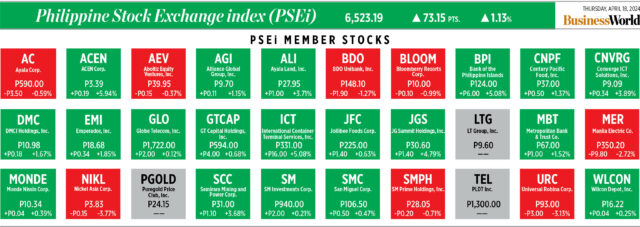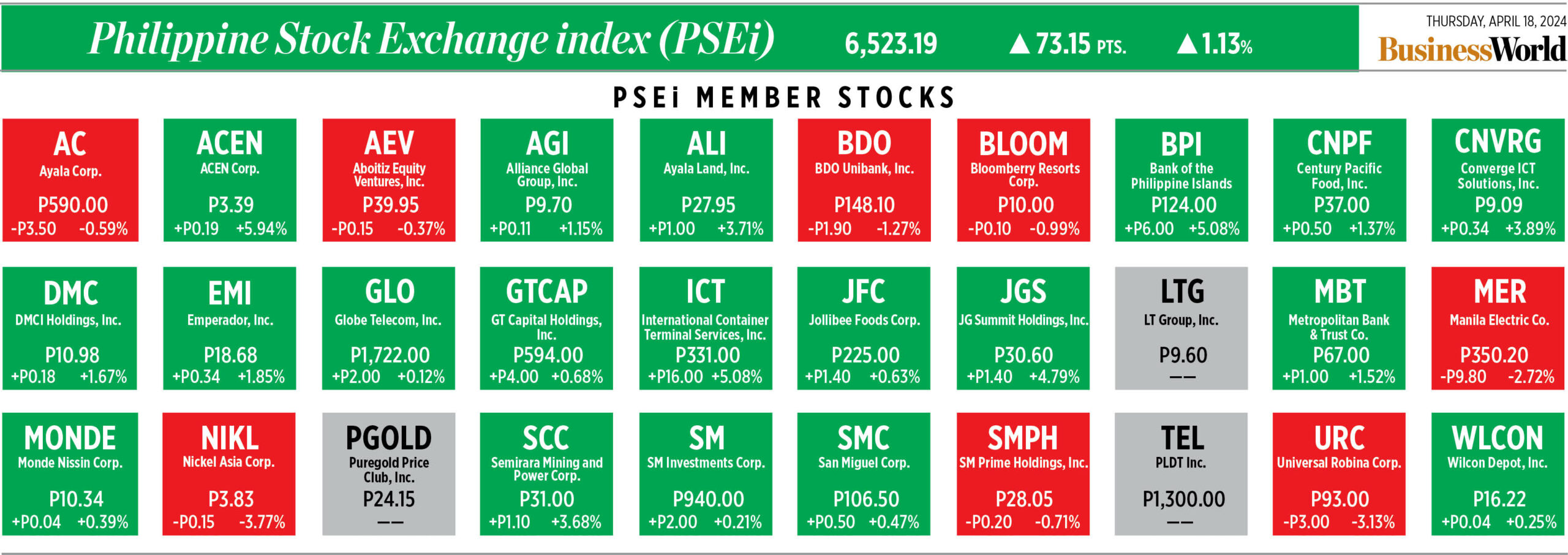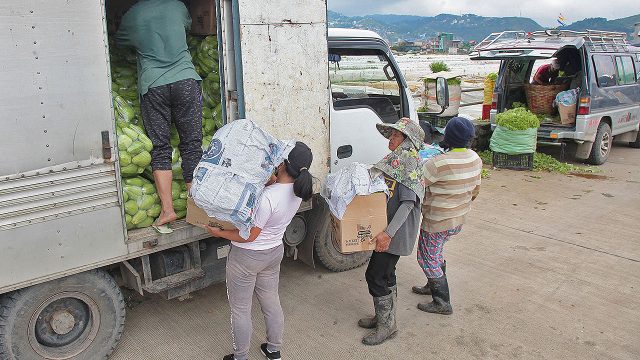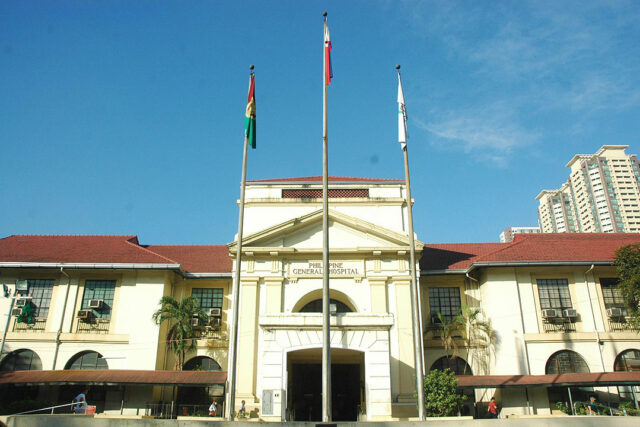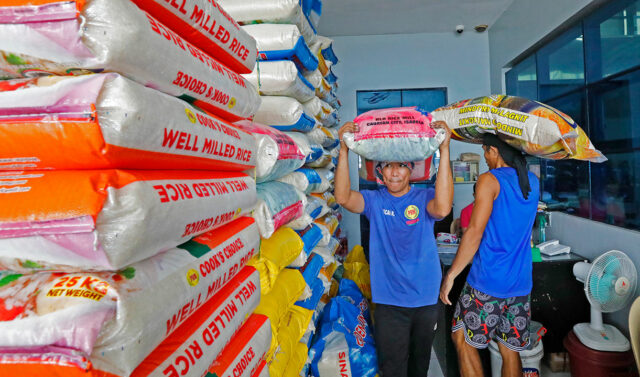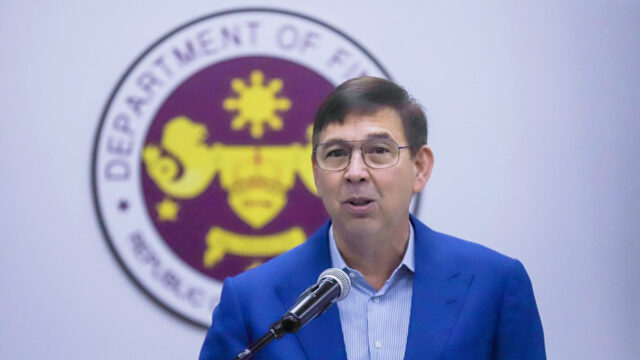Of disadvantageous treaties, sedition, and espionage
The past weeks saw a flurry of activities by Filipinos irresponsible enough to seek to undermine current government policy in relation to the defense of the West Philippine Sea. Quite expectedly, various measures have been proposed from various quarters (from the filing of slander or libel cases to the holding of congressional investigations) to address such doings or goings on.
Nevertheless, it is also true that we already have an array of legal measures that can be readily employed to directly deal with such circumstances, corresponding ultimately to the defense of the national territory and sovereignty.
OF DISADVANTAGEOUS ‘GENTLEMEN’S AGREEMENTS’
To start, in evaluating any supposed “gentleman’s agreement” entered into by the previous administration, one should immediately consider the “Anti-Graft and Corrupt Practices Act” (RA 3019), which penalizes any individual that persuades or influences “another public officer to perform an act constituting a violation of rules and regulations duly promulgated by competent authority or an offense in connection with the official duties of the latter, or allowing himself to be persuaded, induced, or influenced to commit such violation or offense.”
Related to the foregoing, it is also a crime to “enter, on behalf of the Government, into any contract or transaction manifestly and grossly disadvantageous to the same, whether or not the public officer profited or will profit thereby.” This is regardless of the intentions of the public officer concerned; in other words, what is of significance is the effect such an agreement has on the country.
Thus, for “manifestly and grossly disadvantageous” contracts (and a treaty, such as a verbal international agreement, is essentially a contract), a punishment of imprisonment of up to 15 years, perpetual disqualification from public office, and confiscation in favor of the Government of any unexplained wealth manifestly out of proportion to his lawful income, awaits those officials that entered into such contracts.
OF SEDITION AND REBELLION
There have also been calls for the military to disobey or otherwise withdraw support from the President, the Commander-in-Chief. Add to these calls for certain islands or territory to break away from the Republic. In this regard, the provisions of the Revised Penal Code (Arts. 134-142) are relevant:
“The penalty of up to 12 years imprisonment can be imposed upon any person who, without taking arms or being in open hostility against the Government, shall incite others to the crime of coup d’état, the latter defined as a swift attack accompanied by violence, intimidation, threat, strategy or stealth, directed against duly constituted authorities of the Republic of the Philippines or for the purpose of seizing or diminishing state power.
“The penalty of up to six years imprisonment can be imposed upon any person who, without taking any direct part in the crime of sedition, should incite others to the accomplishment of any of the acts which constitute sedition, by means of speeches, proclamations, writings, emblems, cartoons, banners, or other representations tending to the same end, or upon any person or persons who shall utter seditious words or speeches, write, publish, or circulate scurrilous libels against the Government (of the United States or the Government of the Commonwealth) of the Philippines, or any of the duly constituted authorities thereof, or which tend to disturb or obstruct any lawful officer in executing the functions of his office, or which tend to instigate others to cabal and meet together for unlawful purposes, or which suggest or incite rebellious conspiracies or riots, or which lead or tend to stir up the people against the lawful authorities or to disturb the peace of the community, the safety and order of the Government, or who shall knowingly conceal such evil practices.”
To argue that such seditious or rebellious statements are protected by the constitutional provisions on free speech is ridiculous. The Supreme Court has long been consistently clear that certain speech can and should be regulated. Child pornography is one, falsely shouting “fire” in a crowded theater is another. There have been various standards laid down by the Supreme Court to determine if certain speech should be silenced: clear and present danger, and the balancing of interests test. There are, made relatively recently, laws against joking about bombs at airports or spreading disinformation about the coronavirus.
We thus need to recognize confidently that, whether it be Philippine or international law, the right to free speech is not absolute. There are inherent limitations to it, of which blasphemy, libel, threats, sedition, and — quite definitely — treason are the obvious examples.
In a similar vein, therefore, that those propagandizing in favor of a foreign hostile country to the detriment or damage of the national security of the Philippines, BP 39 or the “Act Regulating the Activities and Requiring the Registration of Foreign Agents in the Philippines” can be utilized.
“Thus, any person who acts or agrees to act as political consultant, public relations counsel, publicity agent, information representative, or as agent, servant, representative, or attorney for a foreign principal or for any domestic organization subsidized directly or indirectly in whole or in part by a foreign principal shall be considered a ‘foreign agent,’ and is thus is required to file with the Department of Justice a true and a complete registration statement, under oath, including details on address, name of the foreign principal, copy of the contract/s of employment, details of compensation to be paid, if any, and the form and manner of such compensation, a detailed statement of every activity which the registrant is performing or is assuming or purporting or has agreed to perform for himself or any other person than a foreign principal and which requires his registration, and if the registrant be a partnership, association, or corporation, a true and complete copy of its charter, articles of incorporation, association, constitution, and by-laws and any other instruments relating to its organizations, powers and purposes.
“It shall be illegal for any foreign agent to transmit, convey, or otherwise furnish to any agency or official of the government for or in the interest of a foreign principal any political propaganda, or to request from any agency or official for or in the interest of such foreign principal any information or advice pertaining to any political or public interests, policies or relations of foreign country or of a political party or pertaining to the foreign or domestic policies of the Philippines, unless the propaganda being issued or the request being made is prefaced or accompanied by a true and accurate statement to the effect that such person is registered as a foreign agent.
“In this regard, ‘political activity’ refers to political propaganda or any other activity which seeks in any reasonable degree to prevail upon, indoctrinate, convert, induce, persuade, or in any other way influence any agency or official of the Philippine Government, or any section of the public within the Philippines with respect to the domestic or foreign policies of the Philippines, or with respect to the political or public interests, policies, or relations of a foreign government or a foreign political party.”
DOMESTIC ESPIONAGE
Then there is Commonwealth Act No. 616, “An Act to Punish Espionage and Other Offenses Against the National Security.” This covers instances of a person sharing confidential information that could negatively affect the security of the country, either by sharing it with foreign countries, unduly sharing it with the public in a manner that undermines the national security policy of the government, or otherwise expressing or doing something with the goal of causing demoralization within the military.
Thus, it is illegal for anyone “lawfully or unlawfully having possession of, access to, control over, or being entrusted with any document, writing, code book, signal book, sketch, photograph, photographic negative, blue print, plan, map, model, instrument, appliance, or note relating to the national defense, willfully communicates or transmits or attempts to communicate or transmit the same to any person not entitled to receive it.”
Furthermore, anyone “entrusted with or having lawful possession or control of any document, writing, code book, signal book, sketch, photograph, photographic negative, blue print, plan, map, model, note or information, relating to the national defense, through gross negligence permits the same to be removed from its proper place of custody or delivered to anyone in violation of this trust or to be lost, stolen, abstracted, or destroyed, shall be punished by imprisonment for not more than 10 years.”
More importantly, “anyone with the intent or reason to believe that it is to be used to the injury of the Philippines or of the United States or to the advantage of a foreign nation, communicates, delivers, or transmits, or attempts to, or aids or induces another to, communicate, deliver, or transmit to any foreign government, or any faction or party or military or naval force within a foreign country, whether recognized or unrecognized by the Philippines or by the United States, or to any representative, officer, agent, employee, subject, or citizen thereof, either directly or indirectly, any document, writing, code book, signal book, sketch, photograph, photographic negative, blue print, plan, map, model, instrument, appliance, or information relating to the national defense, shall be punished by imprisonment for not more than 20 years, if the offense is committed in time of peace, or by death or imprisonment for not more than 30 years, if it is in time of war.”
It shall also be “unlawful for any person, with intent to interfere with, impair, or influence the loyalty, morale, or discipline of the military, naval, or air forces of the Philippines: (a) to advise, counsel, urge, or in any manner cause insubordination, disloyalty, mutiny, or refusal of duty by any member of the military, naval, or air forces of the Philippines; or (b) to distribute any written or printed matter which advises, counsels, or urges insubordination, disloyalty, mutiny, or refusal of duty by any member of the military, naval, or air forces of the Philippines. The violation of this section shall be punished by imprisonment for not more than 10 years.”
Those undermining Philippine national security by harboring or concealing violators of CA 616 shall be punished by imprisonment of up to 10 years.
NOT ALL SPEECH IS FREE
As stated here previously, the issue is not the expression of mere differing opinions regarding territorial claims or foreign policy. That is rightly covered by free speech protection.
But when a citizen or local organization declares (impliedly or expressly) allegiance or support to a foreign country or receives funding, endowments, or substantial gifts (e.g., travel, education, promises of employment) from a foreign government (or its agent), with the express or implied purpose of exerting efforts or engaging in speech or activities against the Constitution, Philippine democratic values and principles, and declared State security policy (e.g., upholding the Arbitral Ruling on the West Philippine Sea), then such clearly should be punished by law.
Jemy Gatdula read international law at the University of Cambridge. He is the dean of the Institute of Law of the University of Asia and the Pacific, and is a Philippine Judicial Academy lecturer for constitutional philosophy and jurisprudence.
https://www.facebook.com/jigatdula/
Twitter @jemygatdula




